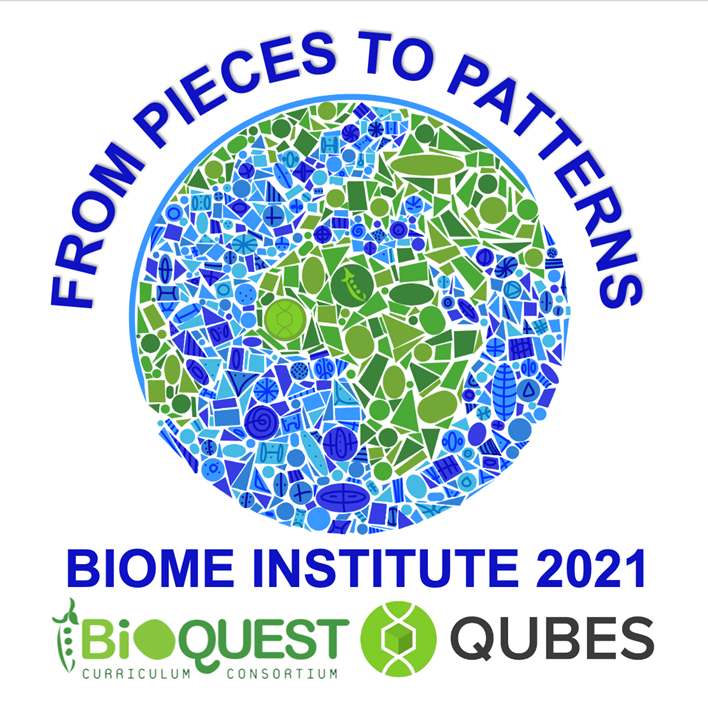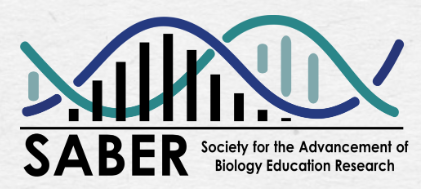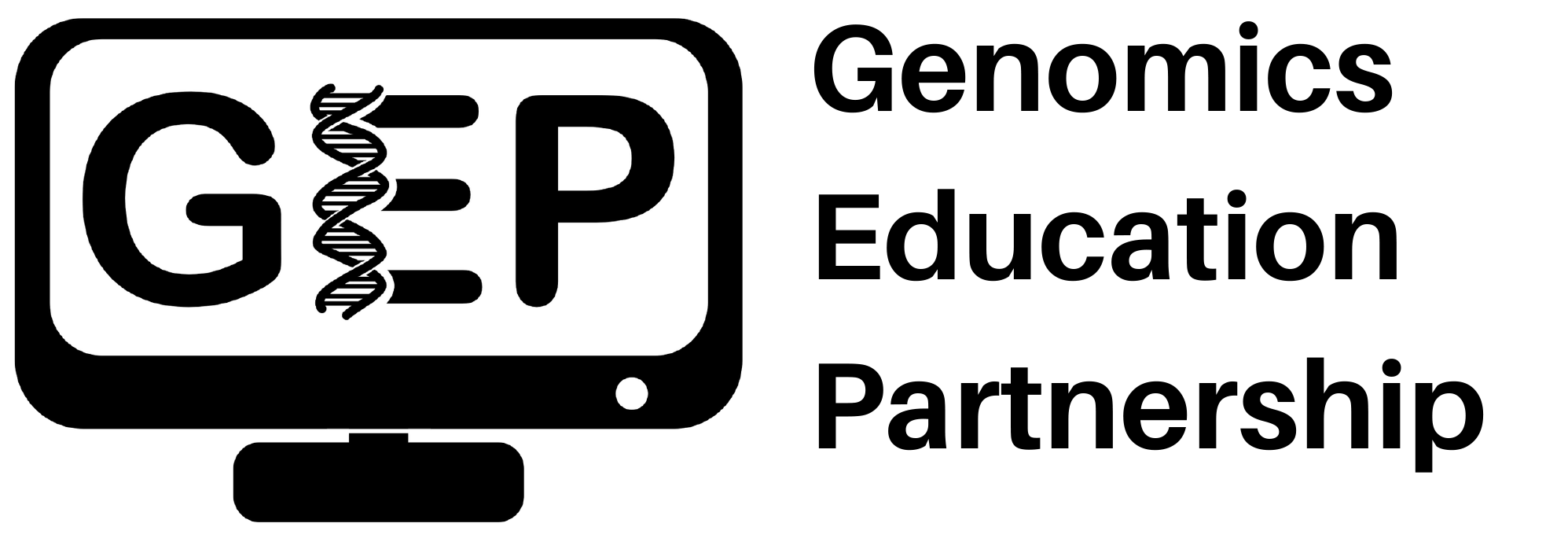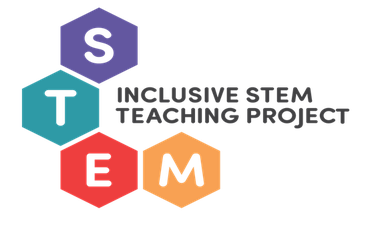
In this newsletter:
QUBES News
Partner Events and Opportunities
Resources and Opportunities
QUBES News
Welcoming CourseSource to the QUBES Platform!

The BioQUEST Curriculum Consortium and CourseSource are thrilled to announce a new partnership that will bring CourseSource’s web presence and resources onto the QUBES platform. This move, which will take place this summer, was supported with pilot funding from the Hewlett Foundation through the SCORE Network. Moving CourseSource onto the QUBES platform reinforces the journal’s commitments to Open Educational Resources (OER), evidence-based teaching practices, and serving the community of biology education faculty. The new platform will also introduce an improved user experience, resource-based community discussions, and the option to create and share adaptations of openly licensed CourseSource resources.
“We are so excited to be welcoming CourseSource onto the QUBES platform and to expand the collaboration between BioQUEST and CourseSource. We value CourseSource’s fantastic team and community, and its commitment to sharing and disseminating teaching resources of the highest quality,” said Sarah Prescott, Executive Director of BioQUEST. “We hope BioQUEST, through the QUBES platform, can provide more avenues for faculty engagement and an expanded capacity for the community to connect and collaborate.”
Read about more exciting things happening at CourseSource, including a newly funded NSF IUSE grant, a new Editor-in-Chief, and an expansion to Physics!
Academic Data Science Alliance to Host Webinar about QUBES, June 17
Join QUBES PIs Sam Donovan and Carrie Diaz Eaton at a webinar about QUBES, hosted by ADSA!
Jun 17, 2021 10:00 am PT
Education/DEI SIGs - QUBES - Quantitative Undergraduate Biology Education and Synthesis
QUBES is a community of individuals and organizations committed to accelerating STEM education reform. Supported by our social-cyberinfrastructure and commitment to teaching quantitative skills, we work to make sure that our teaching is effective, open, accessible, equitable, and inclusive. Join us for a discussion with Carrie Diaz Eaton (Bates College) and Samuel Donovan (University of Pittsburgh) to learn about the community, its impact, and its future.
Register for the webinar here.
2021 BIOME Institute Update
 Applications have closed for the 2021 BIOME Institute, and we are thrilled with the turnout, the mosaic of STEM educators who have applied. We can’t wait to see what this year’s cohort will accomplish. Applications have closed for the 2021 BIOME Institute, and we are thrilled with the turnout, the mosaic of STEM educators who have applied. We can’t wait to see what this year’s cohort will accomplish.
The Summer Session will be held July 19 - August 6, 2021, with an intensive workshop week July 26-30. Follow along on Twitter with the hashtag #BIOME21. Many of the presentations and resources will also be publicly available.
Partner Events and Opportunities
NC State BIT Program Seeks Postdoc
The North Carolina State Biotechnology Program (BIT) is hiring a teaching postdoctoral scholar with an interest in developing molecular biotechnology course-based research experiences. The announcement is posted in the Chronicle of Higher Education.
For further information or to apply, visit the NCSU employment site and search for position number 00102527.
CourseSource and SABER to Offer Online Writing Studios
In partnership with Society for the Advancement of Biology Education Research (SABER) meeting, CourseSource is hosting Online Writing Studios this summer:
Eligibility
The Writing Studio is open to instructors (including faculty, graduate students, and postdocs) who teach biology to undergraduate students and are planning to publish an activity in CourseSource as a Lesson Article. Participants must commit to attending the full Writing Studio, either the July or August session. The August session is for participants writing up online Lessons only.
Preference is given to applicants who have taught the activity that they will be working on at the Writing Studio and who have not previously published in CourseSource. Faculty from community colleges, primarily undergraduate institutions, and minority-serving institutions (colleges and universities) are encouraged to apply.
Learn more about the writing studios here. Application review will begin on May 24.
SABER Continues Spring 2021 Seminar Series on Inclusion in Academic Biology

SABER is sponsoring a virtual seminar series "Striving for inclusion in academic biology," every other Thursday in Spring 2021 at 9:00 AM PT. All sessions are virtual, free, and no registration is required. Learn more about the Spring Series here.
The last seminar is:
Thursday, May 13th, 9:00 am PT
“Beyond information: Walking the path of truth, reconciliation, and liberation to make academic biology more inclusive”
Mays Imad, PhD, Pima Community College
HHMI BioInteractive Offers Virtual Workshops in May and June

Re-energize your teaching and connect with your fellow life and environmental science educators in an online workshop hosted directly by HHMI BioInteractive. Offerings include:
-
Targeting Central Dogma Learning Objectives with SARS-CoV-2 Animations
-
Using HHMI BioInteractive Animations to Promote Student Engagement and Learning
-
Using HHMI BioInteractive's Data Explorer to Examine Impacts of Poaching on Elephant Populations
Learn more about the offerings and register here.
BCEENET to Hold Virtual Summer Meeting, June 14-15

June 14-15, 2021
Biological Collections in Ecology and Evolution Network (BCEENET) brings together natural history collections professionals, undergraduate educators, data experts, and researchers to support the development and implementation of Course-based Undergraduate Research Experiences (CUREs) using digitized natural history collections (dNHC) data.
This meeting will include presentations by faculty who are implementing BCEENET CUREs and collaborating natural history collections professionals. Meeting topics will focus on the use of natural history collections in research and teaching, CURE opportunities for new and current participants, and the effectiveness of BCEENET CUREs in reaching diverse student populations. It will also include discussions of best practices for implementation and training workshops targeted at new and advanced implementers.
All are welcome, and registration is FREE! Sessions will take place live on Zoom, and recordings will be available throughout summer 2021. Find more information and register.
Genomics Education Partnership Summer Trainings Announced

Interested in implementing a genomics research experience and active learning in your undergraduate classes!? The Genomics Education Partnership is a nationwide collaboration of 200+ faculty at 175+ institutions that integrates active learning into the undergraduate curriculum through Course-based Undergraduate Research Experiences (CUREs) centered in bioinformatics and genomics. The GEP’s curriculum materials and research projects are computer-based so they work well in an online setting.
GEP has three options for online training this summer. They especially welcome faculty from Community Colleges, MSIs, & PUIs teaching courses in genetics, genomics, bioinformatics, molecular biology, evolution, or introductory biology.
Find the application here.
SPNHC, iDigBio, BLUE to Hold Natural History Education Demo Camp, June 28-29

Save the Date for the 2021 Natural History Education Demo Camp!
Calling all Educators Looking for Resources (formal and informal, K-12, College)
Do you want to discover new ways to connect your students to nature and still meet learning objectives? Do you want to share some great resources you have developed? The Demo Camp is designed to provide materials and resources to teachers, educators, and faculty looking for easy to adopt educational materials that engage students with the natural world.
Save the dates: 28-29 June 2021
Platform: Zoom
Cost: Free to all participants and presenters
Registration is open for the Demo Camp. For those wishing to share resources, abstract submission is open, and you are encouraged to present!
EDSIN Launches New Initiative and Workshop, August 10, 17
EDSIN (Environmental Data Science Inclusion Network) is excited to announce a new initiative that emerged from one of their community calls last year: Culturally Relevant Education in Environmental Data Science (CREEDS).
This effort will be facilitated by a virtual workshop this summer--save the dates if you would be interested in attending: August 10 and 17.
They've created a page on their website where you can find additional information, and you can also sign up to receive updates.
This work is being funded by the Code for Science and Society.
7th Life Discovery – Doing Science Education Conference Seeks Proposals to the Education Share Fair
7th Life Discovery – Doing Science Education Conference
Pushing Past Barriers: Ecological Science for All
September 30 – October 2, 2021 Estes Park, CO
Now Accepting Proposals to the Education Share Fair
With the knowledge of today’s student populations becoming increasingly diverse, no single teaching approach will successfully engage all. Utilizing culturally responsive teaching methods may help draw students into course content, but how does one tie a curriculum to the students’ distinct background to make learning more contextual and relevant? Which teaching strategies will help to establish inclusion and develop positive attitudes towards STEM learning? Join in and share your novel or tested ideas on teaching culturally relevant materials to diverse audiences.
Learn more and submit a proposal. Proposals will be on a rolling basis until all spots are filled.
This conference is jointly organized by the Ecological Society of America, the Society for the Study of Evolution, and the Botanical Society of America.
Resources and Opportunities
NSF Issues Program Solicitation for Sites that Provide Research Experiences for Teachers

The National Science Foundation's Directorate for Biological Sciences (BIO) will support up to 10 awards annually to enable active research by cohorts of middle school teachers, high school teachers and/or community college faculty.
Research Experiences for Teachers Sites (RET Sites; RETS) will be based at institutions of higher learning or other non-profit organizations in the U.S. that conduct educational and research activities. RETS with a focus on Biological Sciences (BIORETS) will include research projects in fields that are supported by the Directorate for Biological Sciences. BIORETS may be based in a single discipline or department or may offer interdisciplinary or multi-department research opportunities with a coherent intellectual theme.
An important goal of the program is to increase the participation of underrepresented groups in biological research and those from geographically underrepresented areas in science, technology, engineering, and mathematics (STEM). Proposals are strongly encouraged to involve members of these groups both as participants and as mentors. BIORETS awards are expected to leverage the teachers’ research experiences for curriculum development, with the goal of enriching their classroom teaching practices and inspiring a broad swath of students to consider higher education and careers in STEM.
Learn more about the solicitation.
AAAS-IUSE Offers Workshop on Promoting Equity in Undergrad STEM, May 13
How can we promote equity in our undergraduate STEM courses?
In this workshop hosted by the AAAS-IUSE Initiative, speakers discuss different pedagogical approaches to advance equity for underrepresented students in STEM. First, Dr. Roni Ellington asks participants to examine their current curricula, instructional and assessment practices through a culturally responsive lens that will promote equitable student outcomes. Next, Dr. Chandralekha Singh explains the need to look beyond innovative pedagogy to ecological and psychological pedagogical practices to ensure students feel included in their STEM courses. This workshop provides participants with pedagogical practices to integrate into their undergraduate STEM courses to advance equity for underrepresented groups in the classroom.
Learn more and register for the workshop.
For Ecology PhDs: Cornell Seeks Feedback on Assessment
A research team at Cornell is developing the Biology Lab Inventory of Critical Thinking for Ecology (Eco-BLIC) – an assessment to measure students’ critical thinking and reasoning about ecology field and lab data.
They are wondering if anyone with an ecology background and PhD could help with the next step in their assessment development process by answering the Eco-BLIC to the best of your abilities using your expertise in the discipline. Your answers will help the team learn how the questions are functioning, how to design the scoring scheme, and where future adjustments need to be made; this process should take approximately 30 minutes of your time.
LSE Webinar on Creating Inclusive Environments for LGBTQ+ Individuals, June 18
The Editorial Board of CBE–Life Sciences Education (LSE) and the American Society for Cell Biology invite you to their upcoming Online with LSE free webinar:
Fourteen Recommendations to Create a More Inclusive Environment for LGBTQ+ Individuals in Academic Biology
When: Friday, June 18, at 12:00 pm EDT, 11:00 am CDT, 10:00 MDT, 9:00 am PDT
This session of Online with LSE will feature a conversation with senior essay author Sara Brownell, an Associate Professor in the School of Life Sciences at Arizona State University. During the session, we’ll discuss actionable recommendations to help biologists, biology educators, and biology education researchers be more inclusive of individuals with LGBTQ+ identities. Register for the webinar.
Inclusive STEM Teaching Project Hosts MOOC, June 15-July 27

The Inclusive STEM Teaching Project, a National Science Foundation grant-funded program, is hosting a Massive Open Online Course (MOOC) from June 15th - July 27th via edX. This six-week course is designed to advance the awareness, self-efficacy, and ability of STEM faculty, postdocs, graduate students, and staff to cultivate inclusive learning environments for all of their students. Participants will engage in deep reflection and discussion around topics of equity and inclusion across a variety of institutional contexts.
Register for the course here.
In addition, the asynchronous online activities will be extended through synchronous virtual learning communities led by trained facilitators at institutions across the country. This optional course component deepens reflection and learning of the material, and connects course learners to each other in a meaningful way.
Register for a learning community here.
Banbury Center to Hold Meeting on Career-spanning Learning for Scientists
The Banbury Center at Cold Spring Harbor Laboratory is inviting applicants for the Making Career-spanning Learning in the Life Sciences Inclusive and Effective for All meeting, to be held in early December 2021. You can:
-
Attend the conference (~30 attendees); Nominations open April 14-Close May 31. Here is the self-nomination form.
-
Contribute Vignettes (anyone and everyone); Submissions open May 10-Close June 30
-
Comment on the whitepaper (anyone and everyone); Available in early 2022
-
Join the mailing list to receive updates.
See the full announcement.
Members of the QUBES team are always looking to meet others who have a passion for quantitative biology education. Reach out so we can help you gather your collaborators, move projects forward, and continue to move quantitative biology forward. Connect with us by submitting a support ticket.
Do you have a product or result from a QUBES sponsored activity? Help us measure our success by sharing your product or result with QUBES. Learn how to cite QUBES.
|